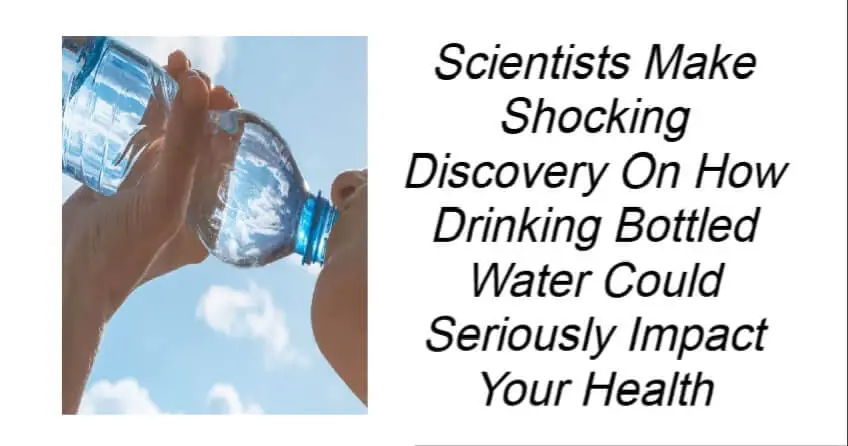Scientists Make Shocking Discovery On How Drinking Bottled Water Could Seriously Impact Your Health
Medical professionals are sounding the alarm over a dangerous hydrocarbon detected in plastic water bottles, warning that it may pose serious risks to vital organs.
In 2024, North Americans consumed a staggering 16.2 billion gallons of bottled water, reflecting a 2% increase from the previous year. While many believe that premium brands like Evian or Fiji Water are the healthiest options, scientists caution that these products may be harmful due to microplastic contamination.
Bottled Water: A Major Source of Microplastics
Groundbreaking studies from Columbia and Rutgers Universities have revealed that a single liter of bottled water contains approximately 240,000 microscopic plastic particles—far more than previously estimated.
Microplastics, tiny plastic fragments that form from the breakdown of larger plastics, are commonly found in cosmetics, cleaning products, and single-use plastic bottles. Recent research analyzing bottled water samples identified seven types of plastic contaminants, including:
✅ Polyamide (a form of nylon)
✅ Polyethylene terephthalate (PET) – the polyester used in most plastic bottles
✅ Polystyrene – commonly found in food packaging
A study published in the Proceedings of the National Academy of Sciences concluded that most of these microplastics originate from the bottles themselves.
Microplastics and Their Impact on Human Health
Once ingested, these tiny plastic particles don’t just pass through the body—they migrate to essential organs like the brain, liver, and kidneys. Even more concerning, research has confirmed that microplastics can cross the placental barrier, potentially affecting fetal development.
A recent study in Communications Biology identified the kidneys as one of the organs most severely impacted by microplastic exposure. Scientists found that microplastics act as carriers for Benzo(a)pyrene (BaP), a highly toxic polycyclic aromatic hydrocarbon linked to:
🚨 Cancer
🚨 Genetic mutations
🚨 Fertility issues (as reported by the European Chemicals Agency – ECHA)
🚨 Severe allergic reactions
🚨 Harm to aquatic life
Researchers warn that microplastic-laden BaP particles cause intestinal damage, impair kidney function, and trigger chronic inflammation—all from a simple bottle of water.
How to Reduce Your Microplastic Exposure
The good news? You can significantly cut down on microplastic ingestion by eliminating plastic water bottles from your daily routine.
✅ Switch to filtered tap water. Studies show that using a high-quality water filter can reduce microplastic exposure by up to 90%.
✅ Ditch single-use plastic. Store food in glass containers and use stainless steel water bottles instead of plastic ones.
✅ Be mindful of seafood consumption. Many marine species ingest microplastics, which then enter the food chain.
✅ Avoid synthetic fabrics. Choose organic cotton or wool over polyester to prevent microfiber pollution.
✅ Reduce plastic waste. Opt for reusable shopping bags, stainless steel straws, and wooden utensils instead of plastic.
A study by Genomic Press found that switching from bottled water to filtered tap water can lower annual microplastic ingestion from 90,000 particles to just 4,000.
By making these simple lifestyle changes, you’ll not only protect your health but also help combat plastic pollution—one bottle at a time.
You’ve just read, How Drinking Bottled Water Could Seriously Impact Your Health. Why not read Lady Accidentally Farts In A Car Showroom.

